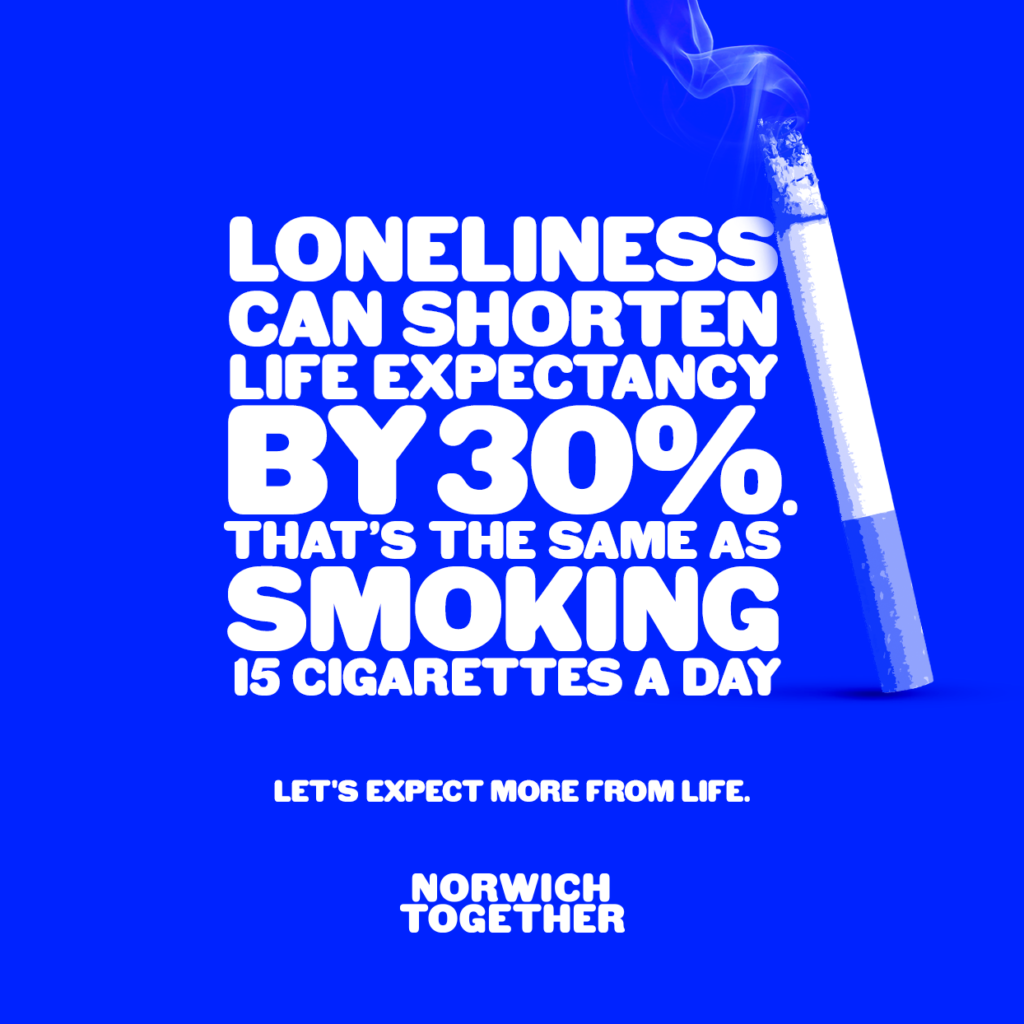Pet owners need for nutritional know-how. And how to appeal to it.
There’s an increasing hunger for nutritional know-how among pet owners, as we shared in our ‘Five emerging pet owner behaviours’ research. We identified two key drivers behind this, but what does it mean for brands today – and how will it shape the pet nutrition market of tomorrow? Here’s our take on it – and a look at what brands can do to build on it.
THE NUTRITION NEOPHYTE IN A NUTSHELL
- There’s been a 55% year-on-year increase in discussion around emerging pet foods.
- A rising number of pet owners are taking action to understand nutrition as a way of demonstrating their commitment to their pet.
- Some Nutrition Neophytes are exchanging spending money on pet food for spending time on research to find affordable alternatives due to the heightened cost of living.
- Other Nutrition Neophytes are interrogating nutrition because of the pet humanisation trend.


HUMANISATION IS AT THE HEART OF THIS
For this trend, humanisation is the key component for brands to continue to focus on. Because even in the face of rising prices, 63% of UK pet food buyers say that money concerns would make them more likely to cut back spending on their own food rather than food for their pet (Source: Mintel).
“For increasingly well-informed pet owners such as these, humanisation comes to life through making people-equivalent wellness choices for their cats and dogs. It is also fuelled by owners increasing ability to specify individual needs-oriented personalisation of products across nutrition, supplements and treatments.”
Andrew Davies, Strategic Partner
Those with a Nutrition Neophyte mindset understand the benefit of nutrition, supplements and other wellness products for their own health, and want to take care of their pet’s wellbeing by making corresponding ‘good’ choices for them. But (and this bit is key) they want to make their choices using their own research and informed judgement, because they are the person who knows their pet the best.
Saturation or innovation?
With all the different petcare and pet nutrition products now on the market, it’s easy to think there’s little space for new or niche brands to thrive. However, meeting the needs of the Nutrition Neophyte negates this sentiment. The market is not saturated, it is simply responding to developing customer demands.
We’ve seen that some brands are already developing products with this audience and humanisation in mind, with new categories launching, human brands crossing over into petcare and existing pet-focused brands branching out into new areas. Innovation across this space is rapid, but brands are having to tackle a tension between emotion and science. Do you sell the results of all the R&D effort that went into perfecting your ‘differentiated’ product? Or do you talk to humanisation head-on? That’s what we’ve been exploring. And we’ve got some answers for you.
LAB COATS OR LIFESTYLE?
What we’re seeing is newer product developments in this area becoming distinctly lifestyle-oriented. Take a look at Bocce’s treats with high-quality ingredients and kin + kind clean-ingredient supplements. Not only the packaging and easy subscription-service fulfilment but the format of these products are mirroring human ‘equivalents’. While we can understand a great deal of expertise went into developing these, it seems these brands are choosing not to hero science in the packaging design, so they can grab the eyeballs of those pet owners who crave human nutrition and wellness counterparts for their pets.
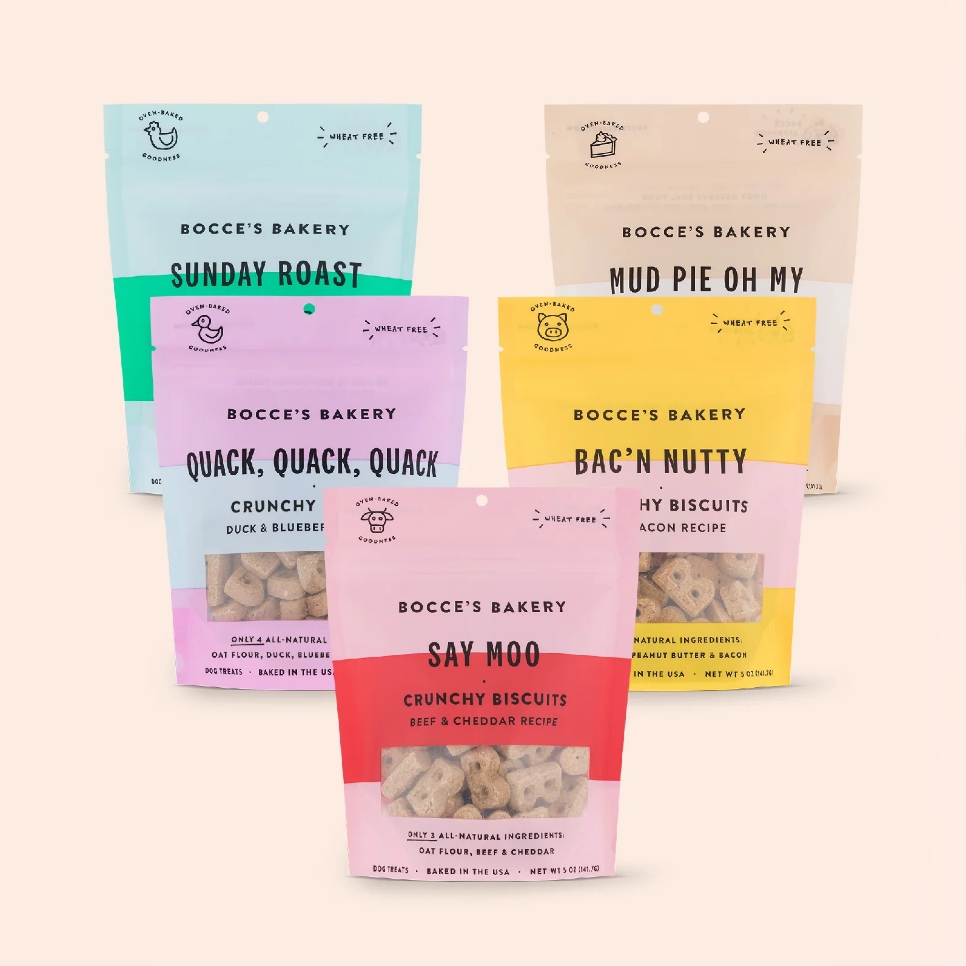
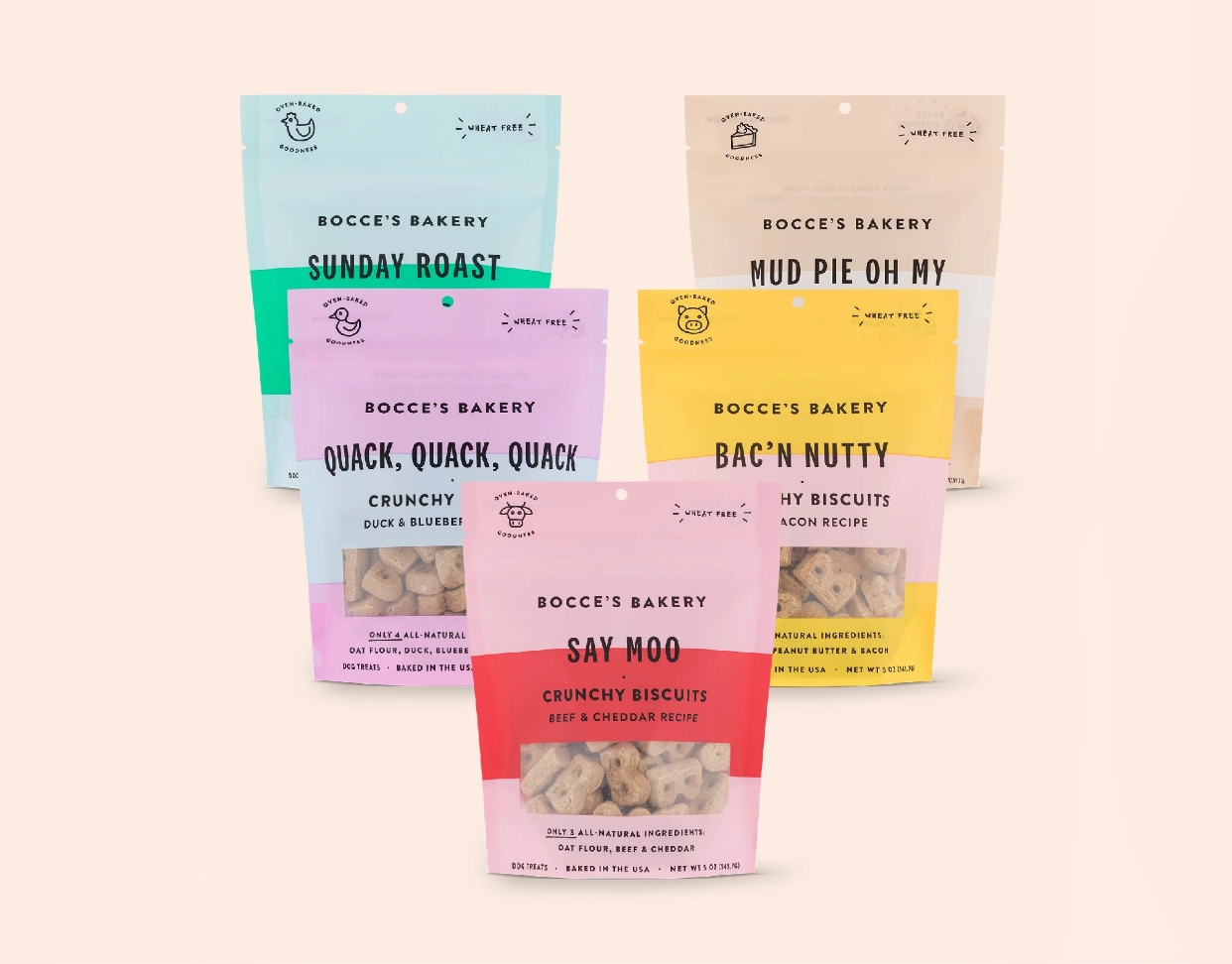
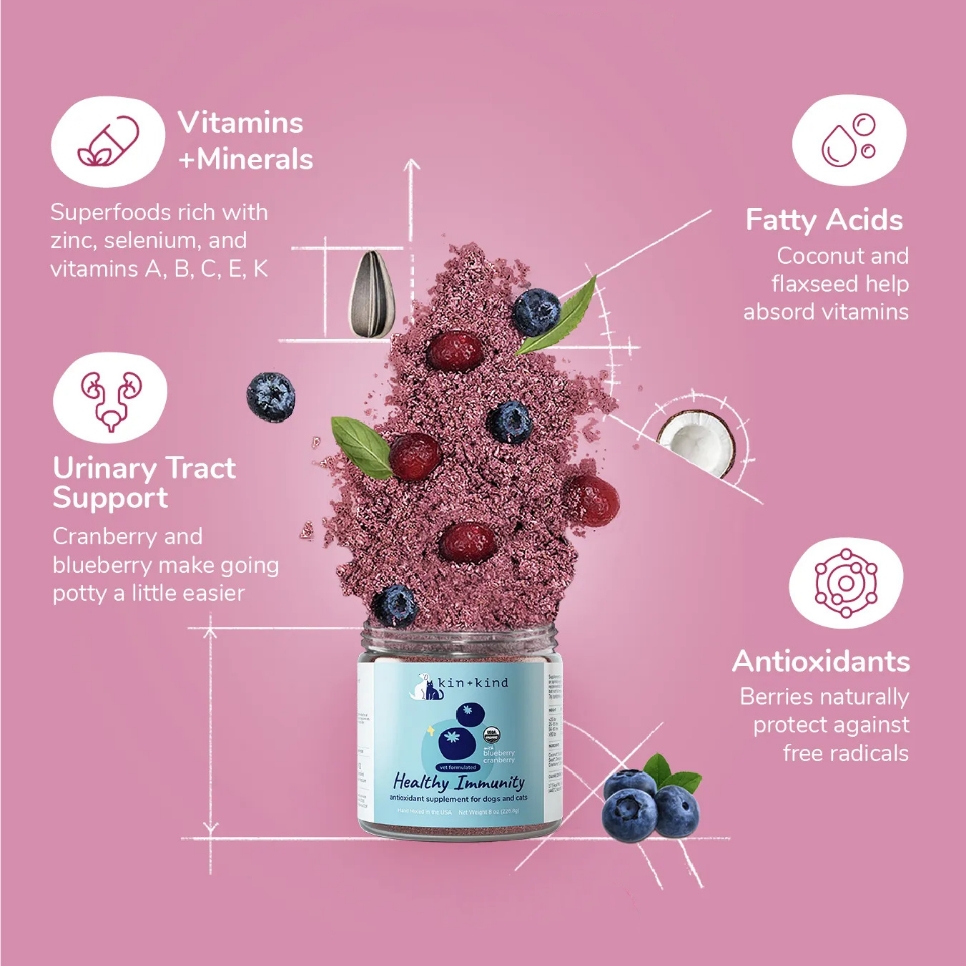
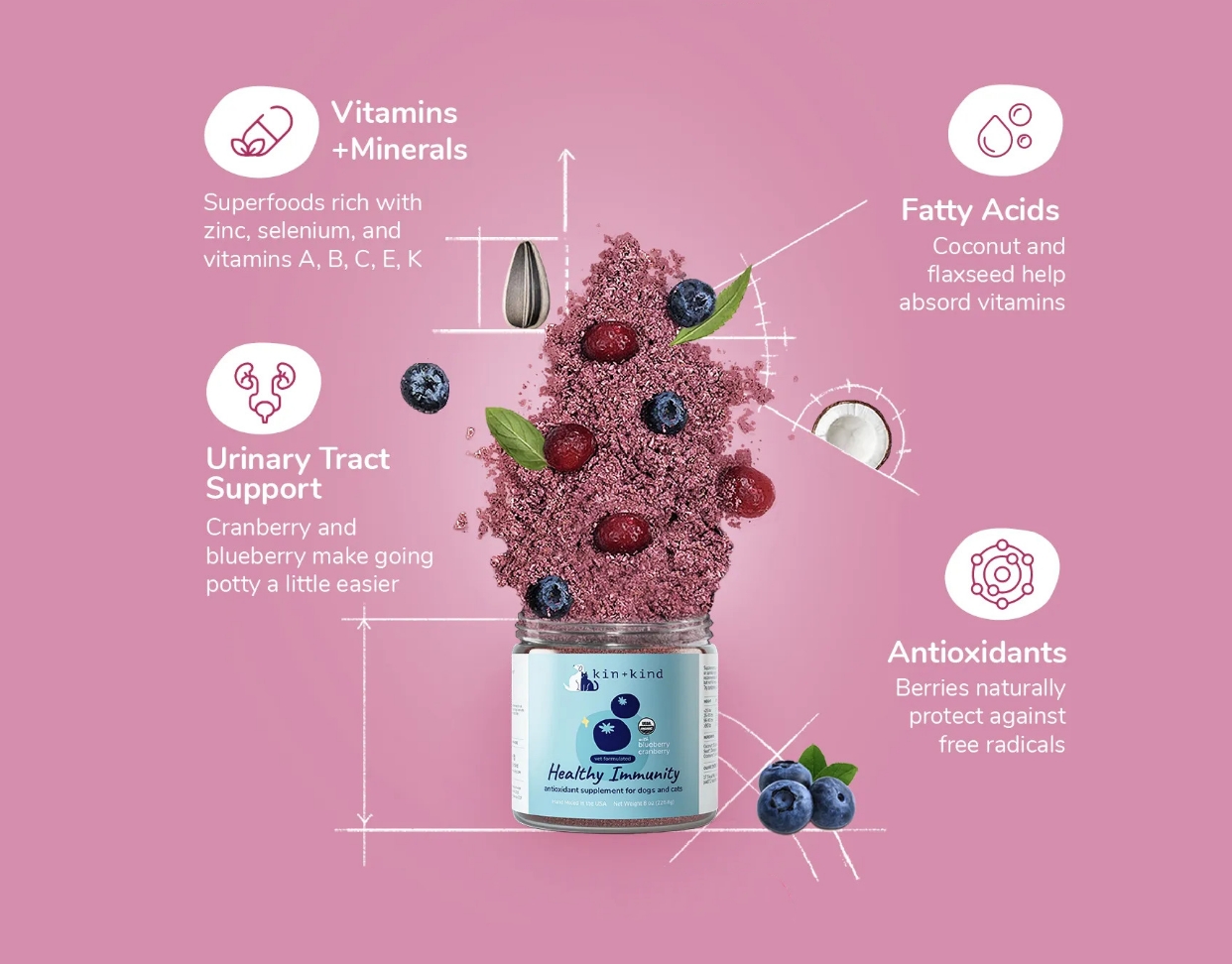
Don’t lose your difference to science speak
This doesn’t mean you have to (or should) let pet owners lose sight of the important R&D that went into your product. For brands who want to appeal to this growing audience, this is more about rethinking the language, messaging and visual assets traditionally associated with science-led products.
To pique Nutrition Neophytes’ interest in your products, expand on the benefits of listed ingredients, avoid close-ended claims about being the best type of diet, and don’t blind consumers with science. They don’t want to just be presented with ingredients; they want to understand them and use information to inform their decisions.
“Being able to marry the dichotomy between lifestyle and labs is possible. It’s about taking away the complexity and communicating in a way that pet owners can feel warmth towards.”
Eliot Sykes, Head of Consultancy – Strategy
We had to consider the ‘lab coats or lifestyle?’ question when launching the UK’s first freeze-dried only-raw pet food brand, COYA. We determined that audience empathy and education were key – empathising with common issues around feeding raw food and educating pet owners on COYA’s unique solution that overcomes these. This drove the tone of voice and visual identity we created, and came through across every touchpoint – not least on the packaging itself. We’ll soon be adding COYA to our Work page to show how we helped bring the brand to market, and to share more about this journey.
HELP THE EXPERT - THE OWNER
The Nutritional Neophyte wants to make their own ‘good’ as well ‘safe’ decisions for their own pet, but they want to find the information, and sometimes recommendations, that will help with this. And they’re not just checking product packaging for these.
Through digital listening, we see pet owners supporting others on forums and sharing advice on TikTok (where petcare products are for also for sale). Of course, this can lead to inaccurate information being put out, however well-intended the advice (something we discussed in a recent piece about protecting against petcare misinformation).
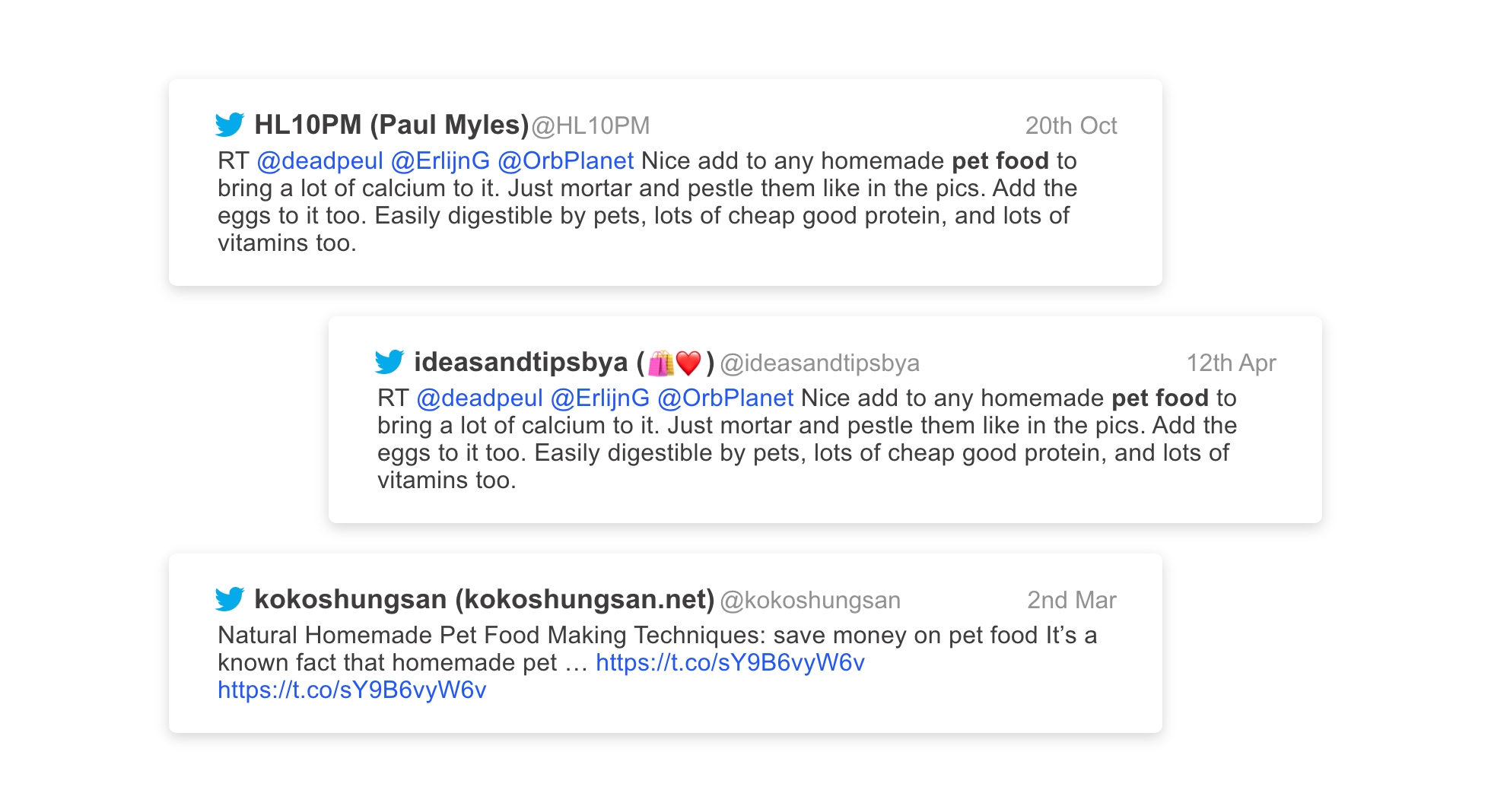

However, if brands build care services and ecosystems that are genuinely helpful, pet owners will come. This is happening now, with brands developing pet health monitoring apps, delivering podcasts and creating pet owner social communities to provide advice, start conversations and empower choice. And it doesn’t just have to be about nutrition. If you want to create meaningful connections for the long term you need to prove your expertise across other areas too, to keep pet owners coming back to you for support.
CONSIDER CROSSOVER CONCERNS
Pet owners applying their own moral or ethical code to their pet is another thread of humanisation. Environmental concerns about food production are part of this, to the extent that in 2022, 38% of Britons said they were influenced by environmental concerns when choosing their pet (Source: Canvas 8 2022).
As we’ve seen awareness about this growing in human food production, it’s also likely to grow in animal food production – putting brands under real pressure to prove their commitment to doing better for our planet. ‘Greenwashing’ won’t wash in this category.
Sustainability and responsibility are part of the Nutrition Neophytes profile and they will be investigating different aspects of this, from plant-based ingredients (think THE PACK’s vegan dog food) to reduced water usage in the product (such as COYA’s freeze-dried diet) and insect-based products (such as LoveBugTM) – and not forgetting the importance of recyclable packaging.
THINK PHYSICAL AND MENTAL HEALTH
With the Nutrition Neophyte mindset, it’s not just about their pet’s physical health. Along with other owners who are humanising their pets, they’re tuned into their pet’s emotions and looking for ways to keep them happy and healthy mentally as well as physically.
Brands that think beyond physical health to encompass holistic health will be of interest to these pet owners. Pooch & Mutt’s Calm & Relaxed Food and Purina Pro Plan®’s Relax + supplement oil both answer this need – and there’s still plenty of space for current and challenger brands to step into this area.
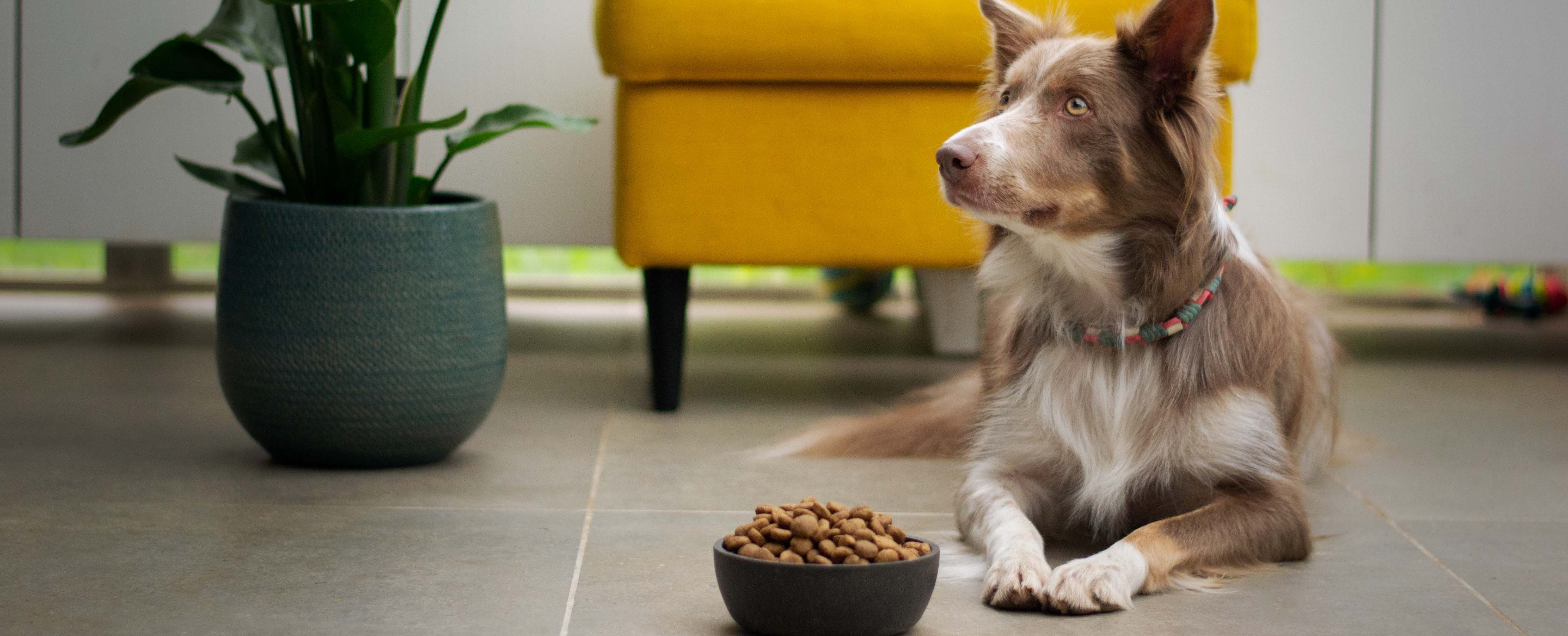

DESIGN EXPERIENCES TO PROVIDE PERSONALISATION
We predict a growing demand for serving products, information and advice tailored to a specific pet. As brands such as Tails.com and Butternut Box are tailoring nutrition to factors such as a pet’s breed, age and activity levels, delivering it in personalised packaging (and with personalised portion control mechanisms), pet owners will come to expect this elsewhere.
Whether it’s coming to your app or website to find nutrition or health advice, they’ll want the information provided in a way that’s relevant to their pet and that directly addresses their needs. Serving information based on whether the pet owner has a cat or dog will come to be perceived as too generic in the not-too-distant future.
This will also create a need to adapt how your customer care team has conversations. When pet owners with a Nutritional Neophyte mindset get in touch, they’ll want to know the specifics of your product offering, have their pet’s name referred to throughout the conversation and come away with a feeling that the experience was unique to them and has provided valuable support to inform their decision-making. This may mean needing to reframe or refocus your customer care training to identify and serve this audience.
If getting to know and serve the Nutritional Neophyte better is on your to-do list, get in touch. We can share real insight from real consumers and provide recommendations to help with enhancing your experience and building consumer trust. Plus, using our strategy and creative expertise, we can help you act on this and create meaningful moments that are intelligently joined up.
CHAT TO US
Have a challenge you'd like to discuss?
Contact Eliot Sykes, Head of Consultancy
eliot.sykes@krowgroup.com




